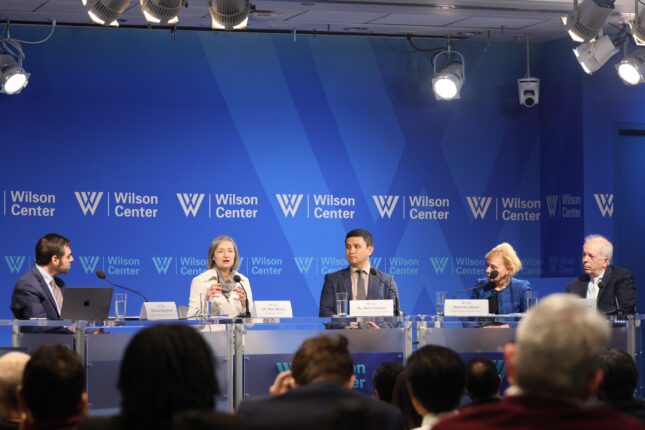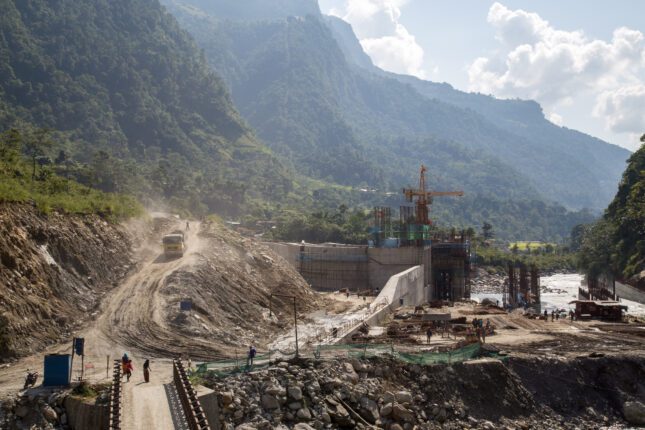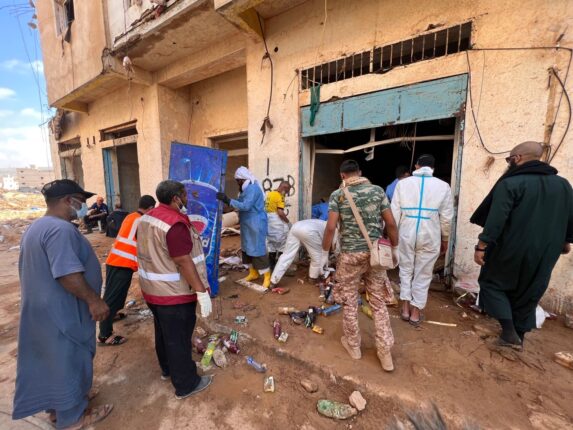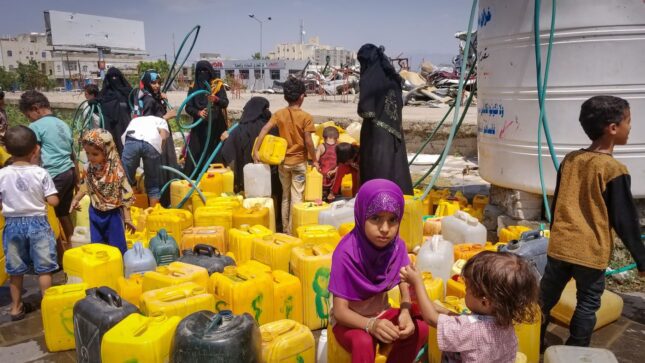-
ECSP Weekly Watch: April 1 – 5
›
A window into what we are reading at the Wilson Center’s Environmental Change and Security Program
Indonesia’s Deforestation Intensifies Extreme Weather Impacts (Associated Press)
Indonesia’s vast biodiverse forests have long sustained livelihoods, food supplies, medicine, and cultural practices. Yet the past seven decades have put them under threat. Since 1950, over 74 million hectares, or nearly 286,000 square miles, of rainforest has been logged, burned, or degraded. The country’s key industries—palm oil, paper, rubber, and mining for oil and critical minerals—are largely to blame. This is occurring in a specific context: Indonesia is not only one of the largest global CO2 emitters globally, but it is also highly vulnerable to climate change—particularly climate change-induced extreme weather events.
-
Plowing Under the EU Green Deal? Climate Policy and the European Parliament Elections
›
This article originally appeared on the blog of Wilson Center’s Global Europe Program.
The recent farmers’ protests that erupted across several EU countries have put the EU climate debate in the limelight of the European Parliament election campaigns. From Spain to Poland, farmers have been expressing grievances over falling margins; rising costs for energy, fertilizers, and transport; increasing competition from Ukrainian imports; and complex bureaucratic procedures.
-
ECSP Weekly Watch: March 25 – 29
›
A window into what we are reading at the Wilson Center’s Environmental Change and Security Program
UN Report Highlights Relationship Between Water and Peace (UN Water)
Freshwater consumption is growing at a steady rate, driven largely by agriculture, yet roughly 50% of the world’s population experiences severe water scarcity for at least part of the year. Poor water quality in low-income countries is attributable to low wastewater treatment, whereas in high-income countries, agricultural runoff does the damage. Extreme droughts or heavy rainfall, exacerbated by climate change, also have worsened in frequency and intensity, creating a deepening impact on global water security.
-
Water @ Wilson | MODSNOW: A New Tool for Water Security in Central and South Asia
›
Central and South Asia’s water resources are critical for the region’s water, energy, food and environmental security. Major rivers in the region originate from the Hindu-Kush-Himalaya, Pamir, and Tien Shan Mountain Ranges and flow across multiple countries. Unique geographical characteristics make water management a complex and challenging task that is further complicated by a changing climate and increasing demand affecting diminishing water resources.
-
Assessing Local Aspects of Climate Security and Environmental Peace
›
Climate change’s potential to aggravate insecurity, particularly through violent conflict, has created a fear that is both widespread and justified. Civil and defense ministries around the world now include climate impacts in their strategic planning, and climate security assessments have become a common policy tool.
-
ECSP Weekly Watch | March 18 – 22
›
A window into what we are reading at the Wilson Center’s Environmental Change and Security Program
WMO Says 2023 Saw Record Heats (World Meteorological Organization)
In a new report, the World Meteorological Organization (WMO) revealed that records for greenhouse gas levels, surface temperature, ocean heat & acidification, sea level rise, Antarctic Sea ice cover, and glacial retreat were smashed over the past year. The State of the Climate study also confirmed that 2023 was the warmest year on record, with temperatures 1.45 degrees Celsius above pre-industrial levels. The WMO also noted that the past decade marked the warmest 10-year period on record.
-
Water Weaponization in Libya: A Conversation with Erika Weinthal
›
Libya provides a case study for the long-term impacts of water weaponization. After the 2011 overthrow of Libyan leader Muammar al-Gaddafi, the country faced civil conflict related to his succession, including two bloody civil wars in 2011, and then from 2014 to 2020, until a ceasefire took effect in 2020. During this period of long-term instability and isolation, Libya’s water infrastructure deteriorated. Combined with the country’s limited water resources, increased demand, and poor management, water insecurity soared.
-
Water Weaponization in Yemen: A Conversation with Niku Jafarnia
›
Yemen’s civil war, which began in 2014, has resulted in one of the world’s worst humanitarian crises. The United Nations estimates that 60% of the 377,000 deaths between 2015 and 2022 were attributed to food insecurity and limited access to health services, and two-thirds of the population (21.6 million people) are in desperate need of humanitarian aid. Though a nominal ceasefire has held since 2022, tensions persist, and civilians continue to face the brunt of the conflict.
Showing posts from category meta.









